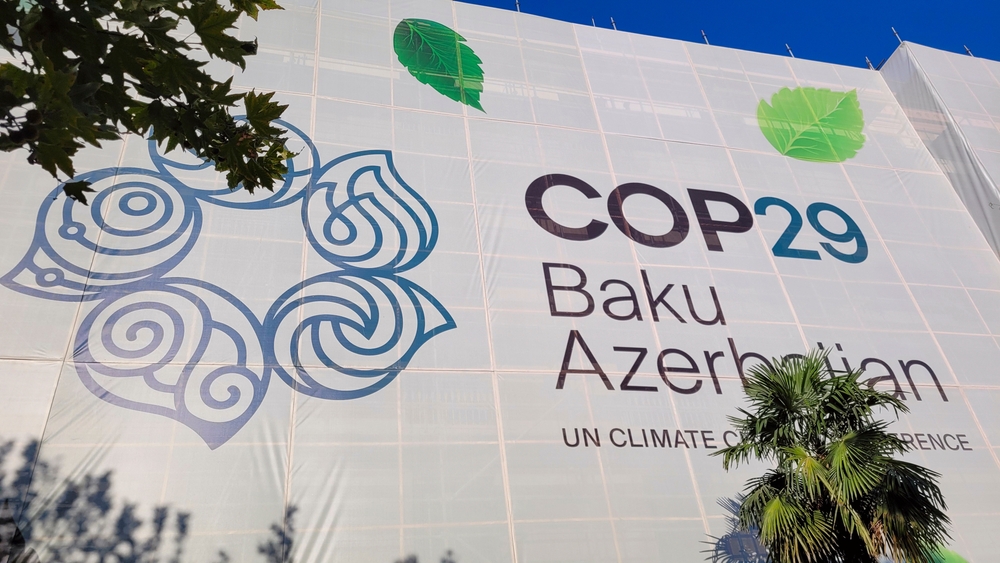
© Tim Asadov/Shutterstock
Armenia’s absence from this year’s Climate Conference in Azerbaijan underscores the ongoing tensions between Yerevan and Baku. Swedish environmental activist Greta Thunberg surprised many by visiting Tbilisi and Yerevan to support protesters
Hopes that Armenia and Azerbaijan might take a step towards normalising relations at the United Nations Climate Change Conference (COP 29) in Baku this month were dashed when Armenia failed to send a delegation to the event, despite receiving an official invitation.
The decision to host COP 29 in Baku was already controversial. Armenia had supported Azerbaijan’s bid to host the conference in a joint declaration last year, in exchange for the release of Armenian prisoners held by Azerbaijan and a promise of future dialogue. In return, Baku released 32 Armenian soldiers, while Yerevan freed two Azerbaijani soldiers. This gesture was seen as a sign that both sides might be moving towards greater cooperation.
However, despite not officially rejecting the invitation, Armenian National Assembly speaker Alen Simonyan made it clear days before the event that participation was morally wrong for him as long as Armenian prisoners remained imprisoned in Azerbaijan. Some pro-Armenian commentators also argued that Yerevan should only attend if Azerbaijan took concrete steps to release the detainees. Despite speculation that Armenian Prime Minister Nikol Pashinyan or Foreign Minister Ararat Mirzoyan might attend, not even a small low-level delegation was sent.
As COP 29 started, the Armenian government blocked a parliamentary resolution from the opposition calling for the release of prisoners held by Azerbaijan, further complicating the situation but highlighting how Yerevan does not want more obstacles in delicate talks to find a lasting peace.
While the Armenian government refrained from officially commenting on COP 29 in Baku, Armenian activists in the diaspora opposed to normalisation with Azerbaijan did not. Swedish climate change activist Greta Thunberg even unexpectedly showed up in Tbilisi, Georgia, where she led a protest alongside a small group of Azerbaijani feminist activists condemning Azerbaijan's human rights record, calling for the Armenian prisoners to be released, and criticising the decision to hold COP 29 in Baku.
Thunberg later travelled to Yerevan to speak at a "side event" organised by a group of local environmental NGOs. The main focus was again on Azerbaijan. Thunberg also staged a small protest outside the UN building in Armenian capital. While the Armenian government was not directly involved in Thunberg’s actions, Azerbaijan nonetheless considered them as part of a broader campaign by diaspora groups and others to undermine efforts to normalise relations.
This was particularly the case when U.S. congressman Frank Pallone unexpectedly arrived in Baku for the conference. A prominent friend and supporter of the Armenian lobby in Washington, he is one of the most active foreign political figures who echo the position of diaspora nationalist groups. Azerbaijani media surrounded him and repeatedly implied he was being paid by an American-Armenian lobby group. He subsequently withdrew from a scheduled press conference with other congressional representatives. There were also small, but verbally aggressive protests outside his hotel.
These actions, while garnering some minor attention in Armenia, were less widely reported internationally, with the media focusing instead on broader human rights criticisms surrounding Azerbaijan’s hosting of the event as well as its controversial role as an oil and gas producer and other issues related to COP.
Nonetheless, some positive news emerged from the conference when U.S. Ambassador to Baku Mark Libby unexpectedly announced that hydrologists and engineers from both Armenia and Azerbaijan were working together on integrated water management for trans-boundary rivers. While no details were provided, it at least demonstrated that, even amid bilateral tensions, there are areas where the two countries could still collaborate.
Azerbaijan has said that negotiations to normalise relations with Armenia will continue in December, and both countries have expressed cautious optimism that a formal peace agreement is still possible. Even so, the hope that the climate conference could serve as a platform for a breakthrough has been quashed, and the future of the peace process remains uncertain.


























 To Top
To Top